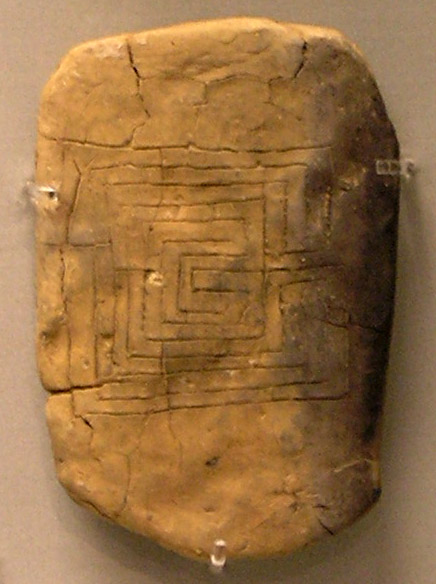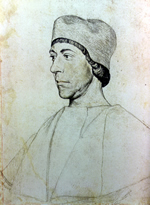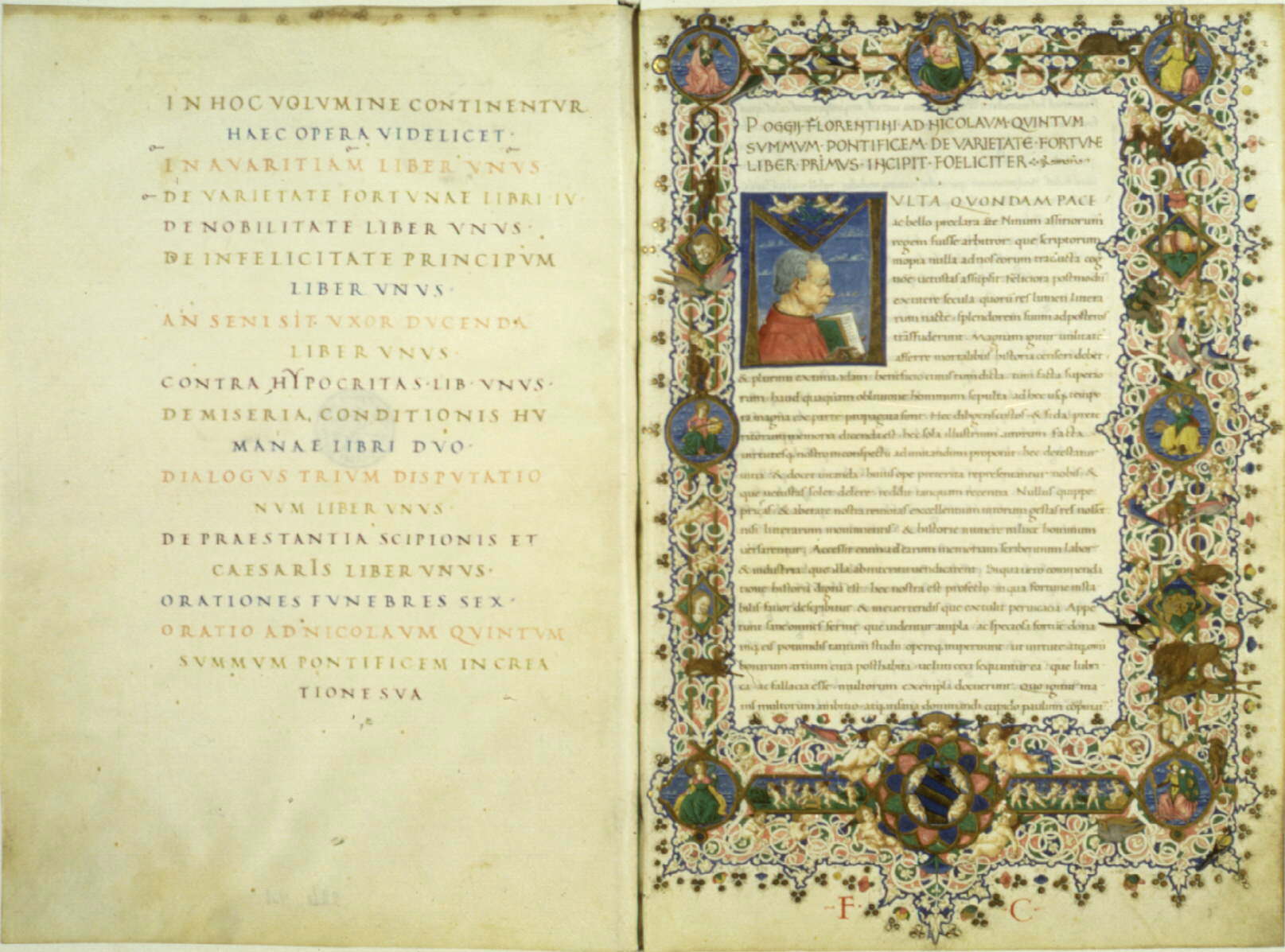|
Titus Lucretius Carus
Titus Lucretius Carus ( ; ; – October 15, 55 BC) was a Roman poet and philosopher. His only known work is the philosophical poem ''De rerum natura'', a didactic work about the tenets and philosophy of Epicureanism, which usually is translated into English as ''On the Nature of Things''—and somewhat less often as ''On the Nature of the Universe''. Very little is known about Lucretius's life; the only certainty is that he was either a friend or client of Gaius Memmius, to whom the poem was addressed and dedicated. ''De rerum natura'' was a considerable influence on the Augustan poets, particularly Virgil (in his ''Aeneid'' and ''Georgics'', and to a lesser extent on the ''Eclogues'') and Horace. The work was almost lost during the Middle Ages, but was rediscovered in 1417 in a monastery in Germany by Poggio Bracciolini and it played an important role both in the development of atomism (Lucretius was an important influence on Pierre Gassendi) and the efforts of various ... [...More Info...] [...Related Items...] OR: [Wikipedia] [Google] [Baidu] |
Hellenistic Philosophy
Hellenistic philosophy is Ancient Greek philosophy corresponding to the Hellenistic period in Ancient Greece, from the death of Alexander the Great in 323 BC to the Battle of Actium in 31 BC. The dominant schools of this period were the Stoics, the Epicureans and the Academic Skepticism, Skeptics. Background The Preceding classical period in Ancient Greek philosophy had centered around Socrates (c. 470–399 BC), whose students Antisthenes, Aristippus, and Plato went on to found Cynicism (philosophy), Cynicism, Cyrenaicism, and Platonism, respectively. Plato taught Aristotle who created the Peripateticism, Peripatetic school and in turn, had tutored Alexander the Great. Socrates' thought was therefore influential for many of these schools of the period, leading them to focus on ethics and how to reach ''eudaimonia.'' Early Platonism, known as the "Old Academy" begins with Plato, followed by Speusippus (Plato's nephew), who succeeded him as the head of school (until 339 ... [...More Info...] [...Related Items...] OR: [Wikipedia] [Google] [Baidu] |
Aeneid
The ''Aeneid'' ( ; or ) is a Latin Epic poetry, epic poem that tells the legendary story of Aeneas, a Troy, Trojan who fled the Trojan War#Sack of Troy, fall of Troy and travelled to Italy, where he became the ancestor of the Ancient Rome, Romans. Written by the Roman poet Virgil between 29 and 19 BC, the ''Aeneid'' comprises 9,896 lines in dactylic hexameter. The first six of the poem's twelve books tell the story of Aeneas' wanderings from Troy to Italy, and the poem's second half tells of the Trojans' ultimately victorious war upon the Latins (Italic tribe), Latins, under whose name Aeneas and his Trojan followers are destined to be subsumed. The hero Aeneas was already known to Greco-Roman legend and myth, having been a character in the ''Iliad''. Virgil took the disconnected tales of Aeneas' wanderings, his vague association with the foundation of Ancient Rome, Rome and his description as a personage of no fixed characteristics other than a scrupulous ''pietas'', ... [...More Info...] [...Related Items...] OR: [Wikipedia] [Google] [Baidu] |
Allusion
Allusion, or alluding, is a figure of speech that makes a reference to someone or something by name (a person, object, location, etc.) without explaining how it relates to the given context, so that the audience must realize the connection in their own minds. When a connection is directly and explicitly explained (as opposed to indirectly implied), it is instead often simply termed a reference. In the arts, a literary allusion puts the alluded text in a new context under which it assumes new meanings and denotations. Literary allusion is closely related to parody and pastiche, which are also "text-linking" literary devices.Ben-Porot (1976) pp. 107–8 quotation: In a wider, more informal context, an allusion is a passing or casually short statement indicating broader meaning. It is an incidental mention of something, either directly or by implication, such as "In the stock market, he met his Waterloo." Scope of the term In the most traditional sense, ''allusion'' is a liter ... [...More Info...] [...Related Items...] OR: [Wikipedia] [Google] [Baidu] |
Olympiad
An olympiad (, ''Olympiás'') is a period of four years, particularly those associated with the Ancient Olympic Games, ancient and Olympic Games, modern Olympic Games. Although the ancient Olympics were established during Archaic Greece, Greece's Archaic Era, it was not until Hippias of Elis, Hippias that a consistent list was established and not until Ephorus of Cyme, Ephorus in the Hellenistic period that the first recorded Olympic contest was used as a Epoch (reference date), calendar epoch. Ancient authors agreed that other Olympics had been held before the race won by Coroebus of Elis, Coroebus but disagreed on how many; the convention was established to place Coroebus's victory at a time equivalent to the summer of 776 BC, 776 BC in the Proleptic Julian calendar, and to treat it as Year 1 of Olympiad 1. Olympiad 2 began with the next games in the summer of 772 BC. Thus, for N less than 195, Olympiad N is reckoned as having started in the year 780-(4\times N) ... [...More Info...] [...Related Items...] OR: [Wikipedia] [Google] [Baidu] |
Jerome
Jerome (; ; ; – 30 September 420), also known as Jerome of Stridon, was an early Christian presbyter, priest, Confessor of the Faith, confessor, theologian, translator, and historian; he is commonly known as Saint Jerome. He is best known for his translation of the Bible into Latin (the translation that became known as the Vulgate) and his commentaries on the whole Bible. Jerome attempted to create a translation of the Old Testament based on a Hebrew version, rather than the Septuagint, as Vetus Latina, prior Latin Bible translations had done. His list of writings is extensive. In addition to his biblical works, he wrote polemical and historical essays, always from a theologian's perspective. Jerome was known for his teachings on Christian moral life, especially those in cosmopolitan centers such as Rome. He often focused on women's lives and identified how a woman devoted to Jesus should live her life. This focus stemmed from his close patron relationships with several pro ... [...More Info...] [...Related Items...] OR: [Wikipedia] [Google] [Baidu] |
Chronicon (Jerome)
The ''Chronicon'' (''Chronicle'') or ''Temporum liber'' (''Book of Times'') was a universal chronicle by Jerome written in Constantinople around the year 380. One of the earliest attempts of universal history; this is a Latin translation and expansion of the Greek chronological tables in the second part of the '' Chronicon'' of Eusebius, written about 50 years earlier. Despite numerous errors taken from Eusebius, and some of his own, Jerome produced a valuable work of universal history, if only for the example which it gave to such later chroniclers as Prosper of Aquitaine, Cassiodorus, and Victor of Tunnuna to continue his annals. In conformity with the Eusebius, Jerome dated Creation to 5200 BC. The Chronicle includes a chronology of the events of Greek mythology based on the work of Hellenistic scholars such as Apollodorus, Diodorus Siculus, and Eusebius. While many of the earlier sections contain legendary characters and events that are not necessarily historically factu ... [...More Info...] [...Related Items...] OR: [Wikipedia] [Google] [Baidu] |
Christian Humanism
Christian humanism refers to two intellectual movements: the anti-paganizing wing of sixteenth century Renaissance humanism (the scholarly movement and worldview that recovered the classical humanities and ideals of citizenship and human dignity;) and modern Christian humanism proper, which is the assertion within a Christian moral framework of humanitarian principles such as universal human dignity, and individual freedom, and which regards the importance of happiness as essential and principal or even exclusive components of the teachings of Jesus. It is not to be confused with modern humanism, which refers to philosophies that assert the primacy of human values and frame of reference over gods, theology, or religion in general. It should also not be conflated with religious humanism, which refers to a nontheistic movement that practices humanism in congregational structures. Terminology Historian Margaret Mann Phillips wrote that the basis of Christian humanism was "the ... [...More Info...] [...Related Items...] OR: [Wikipedia] [Google] [Baidu] |
Age Of Enlightenment
The Age of Enlightenment (also the Age of Reason and the Enlightenment) was a Europe, European Intellect, intellectual and Philosophy, philosophical movement active from the late 17th to early 19th century. Chiefly valuing knowledge gained through rationalism and empiricism, the Enlightenment was concerned with a wide range of social and Politics, political ideals such as natural law, liberty, and progress, toleration and fraternity (philosophy), fraternity, constitutional government, and the formal separation of church and state. The Enlightenment was preceded by and overlapped the Scientific Revolution, which included the work of Johannes Kepler, Galileo Galilei, Francis Bacon, Pierre Gassendi, Christiaan Huygens and Isaac Newton, among others, as well as the philosophy of Descartes, Hobbes, Spinoza, Leibniz, and John Locke. The dating of the period of the beginning of the Enlightenment can be attributed to the publication of René Descartes' ''Discourse on the Method'' in 1 ... [...More Info...] [...Related Items...] OR: [Wikipedia] [Google] [Baidu] |
Pierre Gassendi
Pierre Gassendi (; also Pierre Gassend, Petrus Gassendi, Petrus Gassendus; 22 January 1592 – 24 October 1655) was a French philosopher, Catholic priest, astronomer, and mathematician. While he held a church position in south-east France, he also spent much time in Paris, where he was a leader of a group of free-thinking intellectuals. He was also an active observational scientist, publishing the first data on the transit of Mercury in 1631. The lunar crater Gassendi is named after him. He wrote numerous philosophical works, and some of the positions he worked out are considered significant, finding a way between skepticism and dogmatism. Richard Popkin indicates that Gassendi was one of the first thinkers to formulate the modern "scientific outlook", of moderated skepticism and empiricism. He clashed with his contemporary Descartes on the possibility of certain knowledge. His best known intellectual project attempted to reconcile Epicurean atomism with Christianity. ... [...More Info...] [...Related Items...] OR: [Wikipedia] [Google] [Baidu] |
Atomism
Atomism () is a natural philosophy proposing that the physical universe is composed of fundamental indivisible components known as atoms. References to the concept of atomism and its Atom, atoms appeared in both Ancient Greek philosophy, ancient Greek and Ancient Indian philosophy, ancient Indian philosophical traditions. Leucippus is the earliest figure whose commitment to atomism is well attested and he is usually credited with inventing atomism. He and other ancient Greek atomists theorized that nature consists of two fundamental Principle (philosophy), principles: ''atom'' and Void (philosophy), ''void''. Clusters of different shapes, arrangements, and positions give rise to the various macroscopic Substance (philosophy), substances in the world.Berryman, Sylvia, "Ancient Atomism", ''Stanford Encyclopedia of Philosophy, The Stanford Encyclopedia of Philosophy'' (Fall 2008 Edition), Edward N. Zalta (ed.)online/ref> Indian Buddhists, such as Dharmakirti ( 6th or 7th century) ... [...More Info...] [...Related Items...] OR: [Wikipedia] [Google] [Baidu] |
Poggio Bracciolini
Gian Francesco Poggio Bracciolini (; 11 February 1380 – 30 October 1459), usually referred to simply as Poggio Bracciolini, was an Italian scholar and an early Renaissance humanism, Renaissance humanist. He is noted for rediscovering and recovering many Classics, classical Latin manuscripts, mostly decaying and forgotten in German, Swiss, and French monastery, monastic libraries. His most celebrated finds are ''De rerum natura'', the only surviving work by Lucretius, ''De architectura'' by Vitruvius, lost orations by Cicero such as ''Pro Roscio Amerino, Pro Sexto Roscio'', Quintilian's ''Institutio Oratoria'', Statius' ''Silvae'', Ammianus Marcellinus' ''Res Gestae'' (''Rerum gestarum Libri XXXI''), and Silius Italicus's ''Punica (poem), Punica'', as well as works by several minor authors such as Frontinus' ''De aquaeductu'', Nonius Marcellus, Marcus Valerius Probus, Probus, Flavius Caper, and Eutyches. Birth and education Poggio di Guccio (the surname Bracciolini added during ... [...More Info...] [...Related Items...] OR: [Wikipedia] [Google] [Baidu] |
Middle Ages
In the history of Europe, the Middle Ages or medieval period lasted approximately from the 5th to the late 15th centuries, similarly to the post-classical period of global history. It began with the fall of the Western Roman Empire and transitioned into the Renaissance and the Age of Discovery. The Middle Ages is the middle period of the three traditional divisions of Western history: classical antiquity, the medieval period, and the modern period. The medieval period is itself subdivided into the Early, High, and Late Middle Ages. Population decline, counterurbanisation, the collapse of centralised authority, invasions, and mass migrations of tribes, which had begun in late antiquity, continued into the Early Middle Ages. The large-scale movements of the Migration Period, including various Germanic peoples, formed new kingdoms in what remained of the Western Roman Empire. In the 7th century, North Africa and the Middle East—once part of the Byzantine Empire� ... [...More Info...] [...Related Items...] OR: [Wikipedia] [Google] [Baidu] |








